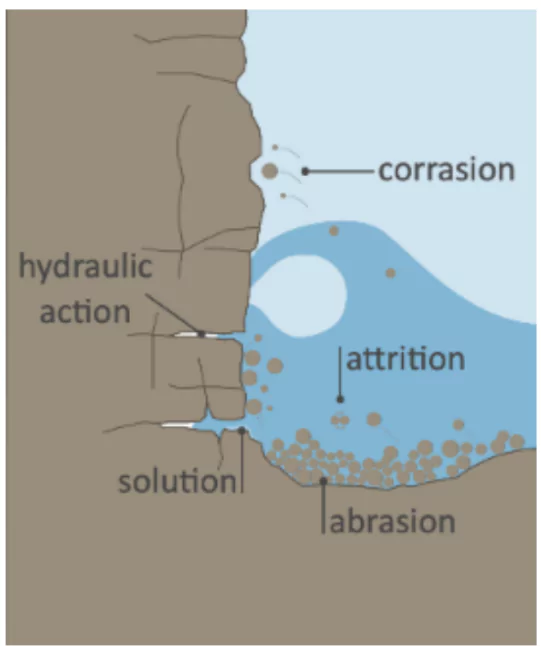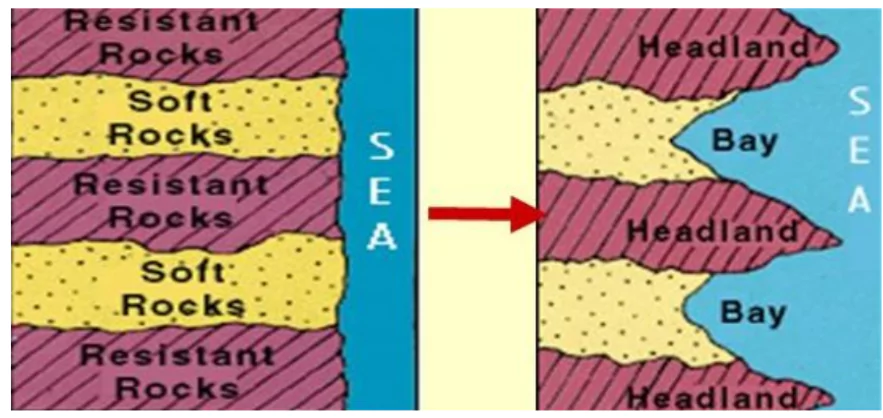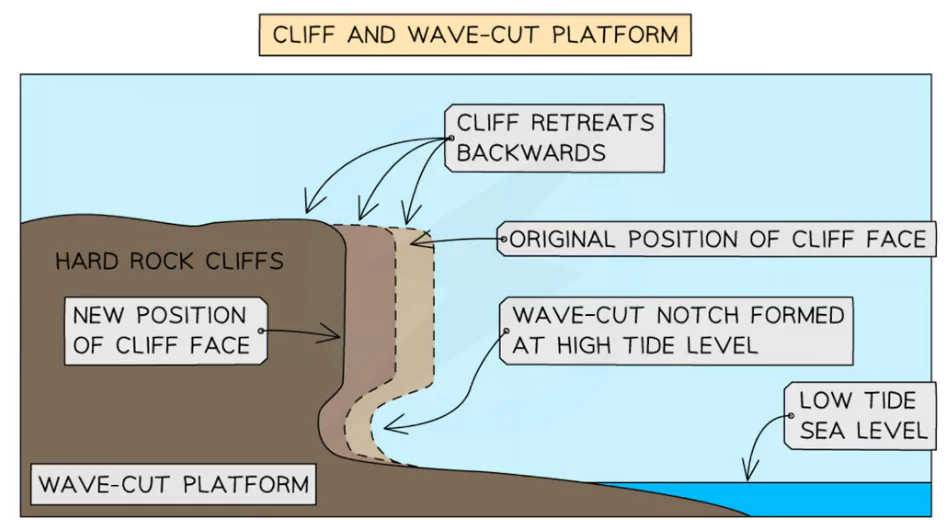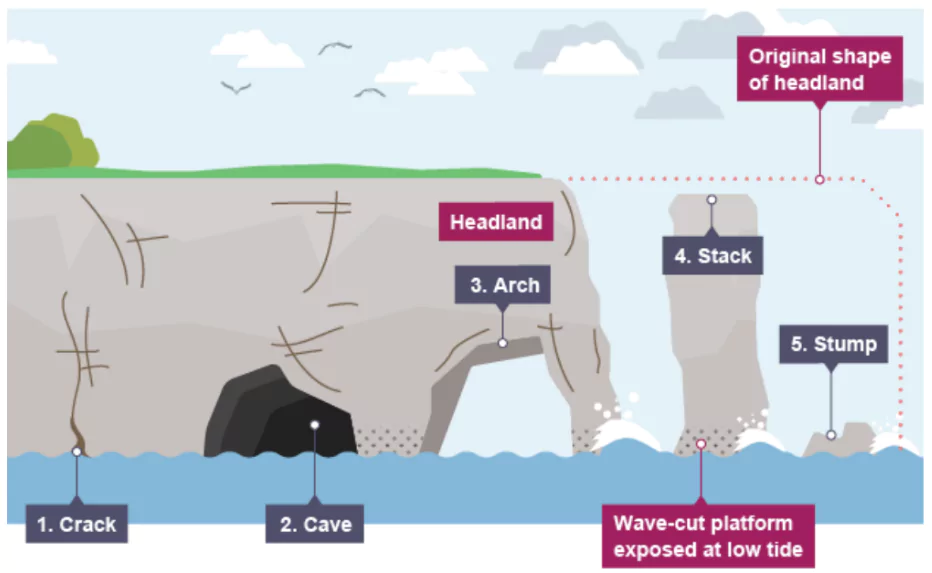![]() April 27, 2024
April 27, 2024
![]() 11701
11701
![]() 0
0
Coasts are ever-changing places where waves shape the land quickly. Understanding coastal processes is vital because erosion and deposition can happen rapidly. Waves crashing onto the shore churn up sediment, causing significant changes. From storm waves to tsunami waves, these forces can transform coastal landscapes in no time.


 Wave Cut Cliffs: Waves break forcefully against rocky coasts, forming cliffs;
Wave Cut Cliffs: Waves break forcefully against rocky coasts, forming cliffs;
 Sea Stacks: resilient rock masses, originally part of cliffs or hills, standing alone just off the shore.
Sea Stacks: resilient rock masses, originally part of cliffs or hills, standing alone just off the shore.| Must Read | |
| Current Affairs | Editorial Analysis |
| Upsc Notes | Upsc Blogs |
| NCERT Notes | Free Main Answer Writing |
Coastal processes shape our shorelines with constant change. From the erosion of cliffs to the formation of caves and arches, nature’s forces sculpt diverse landforms. Whether it’s the rugged beauty of sea stacks or the gentle slopes of coastal plains, each feature tells a story of waves at work. Understanding these processes is key to appreciating the dynamic and ever-evolving nature of our coasts.
| Related Articles | |
| Groundwater Recharge | Formation Of Landform: Impact Of Ice & Waves |
| Earthquakes: Forces, Causes, and Protective Measures | 7 Continents and 5 Oceans in Order of the World |
<div class="new-fform">
</div>
Latest Comments